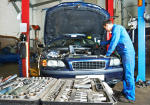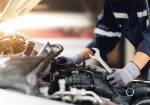The Future of Diesel Repair: Technology and Trends

Diesel repair is evolving quickly in modern times. Engines require better maintenance for longer life. Workshops are adopting advanced tools and equipment daily. Fleet operators demand faster service and lower downtime. Mechanics face new challenges that require updated skills constantly. Training programs focus on digital systems and technology. Repairs are becoming more accurate and efficient today. Workshops are investing in smarter diagnostic devices rapidly. Diesel repair will continue changing as technology improves every day. New trends shape the future of engine care permanently. Predictive systems help mechanics plan maintenance before problems appear.
Smart Diagnostics Transforming Repairs
Smart diagnostics are changing how engines are maintained permanently. Sensors monitor engine temperature pressure and operational performance constantly. Faults can be detected before serious damage occurs. Mechanics use digital systems for faster accurate repairs. Predictive maintenance prevents sudden engine failures in large fleets. Engine data shows hidden weak points for early intervention. Repair efficiency improves when problems are diagnosed quickly and correctly.
Electric and Hybrid Integration
Diesel repair now includes hybrid and electric engines regularly. Batteries motors and wiring require careful handling and inspection. Mechanics must learn new skills to manage electric systems. Engines combine diesel power with hybrid electric support now. Diesel Repair in Jonesboro, AR trains staff to handle dual systems efficiently. Future vehicles will require advanced knowledge for repairs constantly. Workers adapt to emerging technology to remain competitive in business. Electric integration changes how maintenance and repair work is performed today. Mechanics must master both diesel and electric systems for efficiency. Repair procedures must evolve with technology to meet modern demands.
Telematics and Remote Monitoring
Telematics allows fleet operators to monitor trucks remotely every day. Sensors collect engine information and send it to repair centers. Problems are identified before trucks stop unexpectedly on highways. Maintenance schedules are planned based on real time information daily. This reduces unplanned downtime for vehicles in large fleets. Remote monitoring provides alerts and detailed diagnostic reports instantly. Mechanics can organize repairs using accurate information from telematics devices.
Engine and Software Updates
Modern diesel engines must continually use complicated software. Fuel efficiency, emissions, and engine performance improve with updates. Mechanics carefully update and program firmware regularly. Software maintenance keeps engines running and trucks reliable. Staff training emphasises digital capabilities and electrical module troubleshooting. Electronic control systems need rigorous study and testing to avoid errors. Regular software updates prevent engine failures and extend engine life. Digital systems now permanently shape diesel repair.
Conclusion
Diesel maintenance is changing swiftly due to technology and trends. Industry is continually changing due to precision speed and efficiency. Predictive maintenance prolongs engine safety and efficiency. Repair components are available promptly using 3D printing. New tools and systems change staff training. For constant competitiveness, workshops must innovate. Downtime and operational costs are constantly lower for fleet operators. The future promises faster, smarter, more dependable diesel repair. Diesel engines will stay efficient as maintenance technology improves.



















